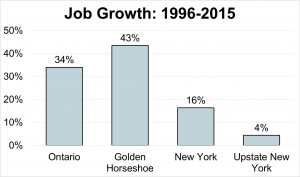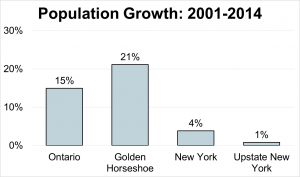 Isolationism is a recurring theme within the United States. An advantage of our size, our rich stock of natural resources, the diversity of our people and our placement between two oceans is that we can afford to be more independent than, say, Belgium, a tiny nation nestled among France, Germany and the Netherlands, with the United Kingdom just over the Channel. Many Americans never visit our continental neighbors, Canada and Mexico, much less cross an ocean to see less familiar lands.
Isolationism is a recurring theme within the United States. An advantage of our size, our rich stock of natural resources, the diversity of our people and our placement between two oceans is that we can afford to be more independent than, say, Belgium, a tiny nation nestled among France, Germany and the Netherlands, with the United Kingdom just over the Channel. Many Americans never visit our continental neighbors, Canada and Mexico, much less cross an ocean to see less familiar lands.

Yet the world invades our homes through the media—a visual loop of terror, privation and menace. It also invades our work lives as global competition, supported by new technology, robs many of their occupations and threatens their well being.
Is it any surprise that a “bottom line” populist like Donald Trump—and, increasingly, Ted Cruz—has built his campaign around fear? Pundits wonder why so many can be captured by his inconsistent, nearly incoherent claims and promises. Yet fear is inchoate. A child frightened by the dark is rarely comforted by logic—the snake or the ghoul springs back to life as soon as Mom or Dad leaves the room.
But you can’t blame me for trying. Immigration is, on balance, good for our economy and good for our society.
We can be selective. The United States is the first choice of many aspiring immigrants. We will attract the motivated and educated of the world and we can choose to be more selective than we have been in the past. Canada has established preferences for individuals who bring a particular skill or who are well educated. In 2011, only 13% of permanent immigrants into the United States were “economic immigrants,” individuals granted permanent residency by virtue of their skills, abilities or educational attainment. In Canada, it was a whopping 63%, 10 times the U.S. rate per capita.
 Immigrants are motivated. While this applies less to a refugee crisis, individuals who choose to seek a new home for themselves and their families bring an unusual level of energy and motivation to our shores. Again looking at our neighbor to the north, many believe that the energy and innovation of immigrants has contributed significantly to the growth of Greater Toronto, also known as the “Golden Horseshoe.” Native born Canadians living in Toronto have more economic opportunity because of the contributions of immigrants.
Immigrants are motivated. While this applies less to a refugee crisis, individuals who choose to seek a new home for themselves and their families bring an unusual level of energy and motivation to our shores. Again looking at our neighbor to the north, many believe that the energy and innovation of immigrants has contributed significantly to the growth of Greater Toronto, also known as the “Golden Horseshoe.” Native born Canadians living in Toronto have more economic opportunity because of the contributions of immigrants.
Immigrants pay their way. OK, not right away. But over time, immigrants contribute more in taxes than they cost in services. That’s particularly true if we focus on immigrants who bring needed technical skills and a good education.
 Immigrants are law abiding. The crime rate among immigrants is lower than among the native born (see http://goo.gl/7NiuM1). That doesn’t ignore the fact that undocumented immigrants have been associated with crime, but the wild claims of Donald Trump about the criminality of immigrants are demonstrably false.
Immigrants are law abiding. The crime rate among immigrants is lower than among the native born (see http://goo.gl/7NiuM1). That doesn’t ignore the fact that undocumented immigrants have been associated with crime, but the wild claims of Donald Trump about the criminality of immigrants are demonstrably false.
Let’s learn from Canada. Justin Trudeau, newly elected Prime Minister of Canada, vowed to take 25,000 Syrian refugees by the end of 2015. While that ambitious target passed, the goal is within reach today. A country a tenth of our size provided sanctuary to 25,000 in just over four months. Our process, by contrast, takes years. One suspects that immigrants to the United States from Syria have to be approved by half the bureaucrats in Homeland Security, a federal department with 240,000 employees and countless agencies.
We are a nation of laws and have an obligation to police our borders. Legitimate concerns about illegal immigration, however, need not be conflated with our moral obligation to do what we can—which is quite a lot—to be part of the solution to Europe’s refugee crisis. I’m confident that our security apparatus is robust enough to keep track of 250,000 Syrian refugees, which would be the equivalent of what Canada has done since November. There are far easier ways to enter the United States than to undergo the kind of before-and-after security screening these refugees receive.
We need only look across Lake Ontario for a shining example of the benefits of freer immigration. Canadians have not lost sight of their history as a nation of immigrants. Why have we?